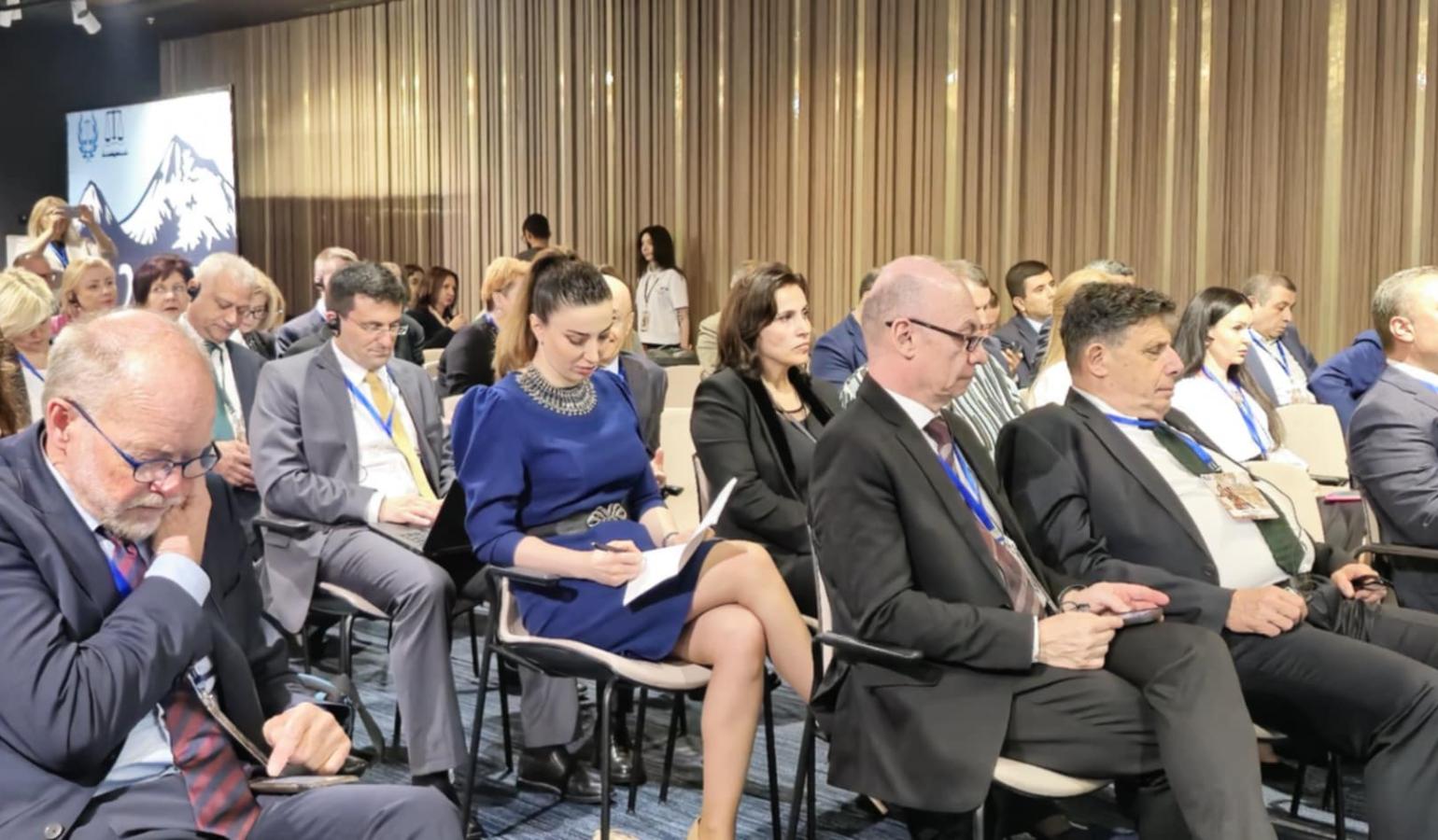
"Today, the international legal system faces a very serious challenge, and the independence of the judiciary, in addition to being a national agenda, has become an international agenda. And it is sometimes through the involvement of international bodies that these issues can be advanced and receive certain positive solutions." Siranush Sahakyan, Head of the "International and Comparative Law Center," stated this during her extensive speech at the annual conference of the European Association of Judges (EAJ).
During the conference, topics related to the independence of the judiciary in Europe and the region, regional challenges to justice, and international cooperation were discussed. More than 70 delegates from 34 countries participated in the event.
According to Sahakyan, the biggest problem related to judicial independence in Armenia concerns the activities of the Supreme Judicial Council (SJC). Despite being a constitutional body called upon to ensure the independence of the courts, the SJC, according to her, has turned into a link exerting indirect influence over judges. The misuse of disciplinary tools to terminate the activities of undesirable judges is concerning. A fundamental lack of impartiality is observed in the SJC's actions, and judges' rights are not protected: "We have numerous cases where proceedings were initiated against a judge with the characteristics of a common disciplinary violation, and then in the deliberation room, the Supreme Judicial Council qualified the act as a significant disciplinary violation and terminated the judge's powers. This means that throughout the entire judicial process, the judge was deprived of the opportunity to defend themselves. We have also had documented cases where the Supreme Judicial Council used new evidence in the deliberation room that had not been presented to the judge, and the judge did not have the opportunity to present their opinion on that evidence," Sahakyan noted.
These issues have been raised at the European Court of Human Rights (ECHR). Based on numerous complaints, the ECHR has noted that a systemic problem exists in Armenia related to the SJC's activities and has given priority to these cases. The legal issues raised include the impartiality of the SJC's composition, the respect for the components of the right to a fair trial in disciplinary proceedings, and the termination of powers as a disproportionate interference.
Referring to the countries of the South Caucasus and based on international reports and ECHR analysis, Sahakyan presented the following picture: "In the Republic of Armenia, although the public authorities have undertaken the complex process of judicial reforms, they are often implemented fragmentarily, without a comprehensive strategy, and the Supreme Judicial Council is perceived as a non-independent body. In Georgia, the legal system is practically under the control of a closed influential group, the so-called 'judicial clan.' In Azerbaijan, the situation is more concerning; courts effectively operate as a unit of the executive branch, especially in cases of a political nature, torture is used, trials are formal, and human rights defenders are subjected to persecution. There are political prisoners in the country, which characterizes the judicial system as an effective tool for political pressure."
These assessments are confirmed by ECHR statistics. According to official data, the Court has issued 27 judgments finding violations of the right to a fair trial against Armenia, 93 against Azerbaijan, and 15 against Georgia. "The analysis of the European Court's case law shows that to date the Court has issued 31 judgments finding violations of Article 18, and the evidentiary threshold is quite high. The geographical distribution of these cases is important in itself: Azerbaijan - 11 cases, Russia - 7 cases, Turkey - 5 cases, Ukraine - 3 cases, Georgia - 2 cases, Bulgaria, Moldova, Poland - 1 case each. The fact that 11 out of 31 cases, i.e., around 35.5%, relate to Azerbaijan, also indicates widespread political interference," Sahakyan presented.
Sahakyan also pointed out the tendency to use trials, especially in conflict zones, as a factor for generating hatred. As an example, she cited the trials of Armenian prisoners of war in Azerbaijan, where international involvement is limited, observers are deprived of the right to be present and are even subjected to persecution. These trials do not ensure a fair trial and are used to incite hatred against ethnic Armenians.
"I believe that strengthening the judiciary is a strategic priority not only at the legal level but also at the political and moral levels. As bearers of democratic values and a community committed to those values, we have a shared responsibility to create an environment where judicial systems operate not under pressure, but in defense of human rights, freedom, and justice," Sahakyan emphasized at the end of her speech.